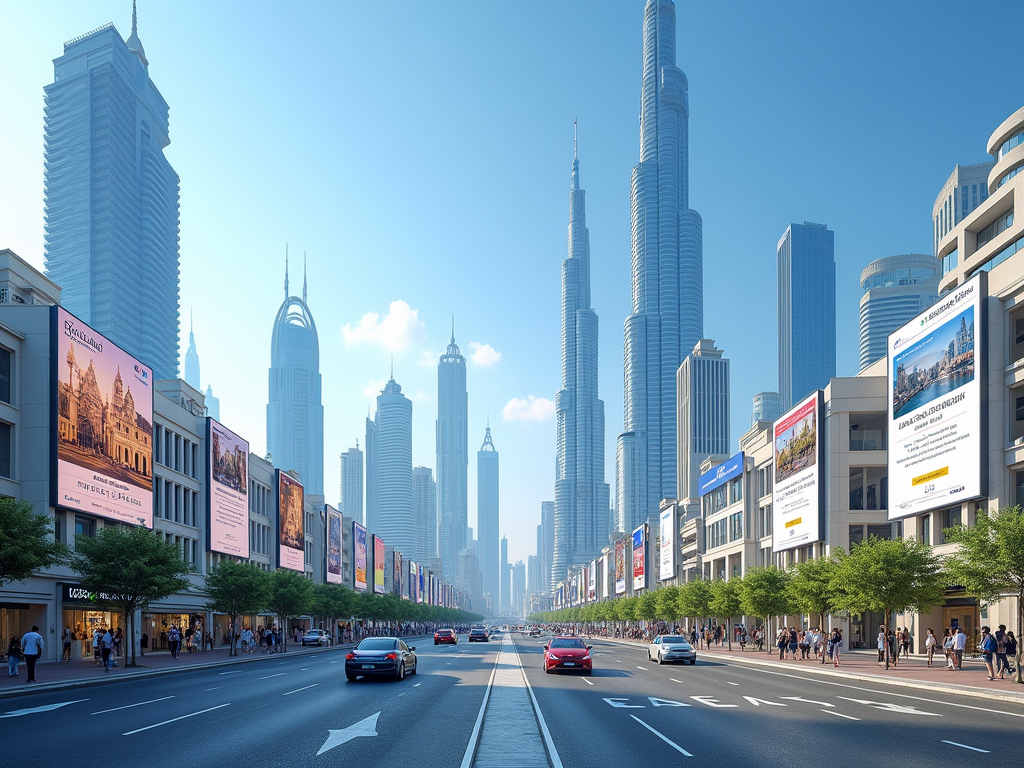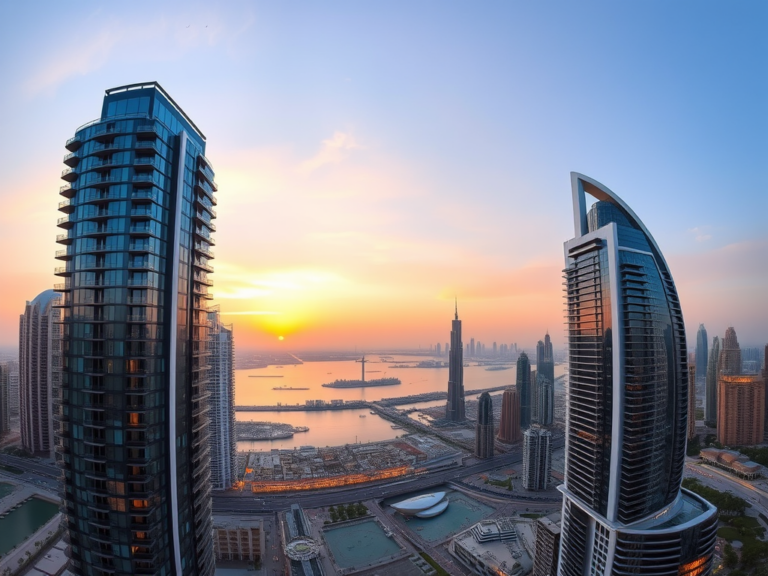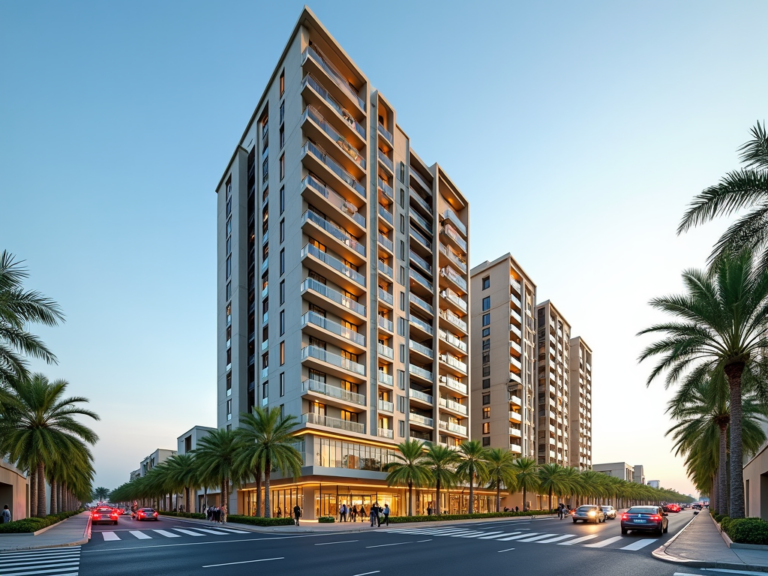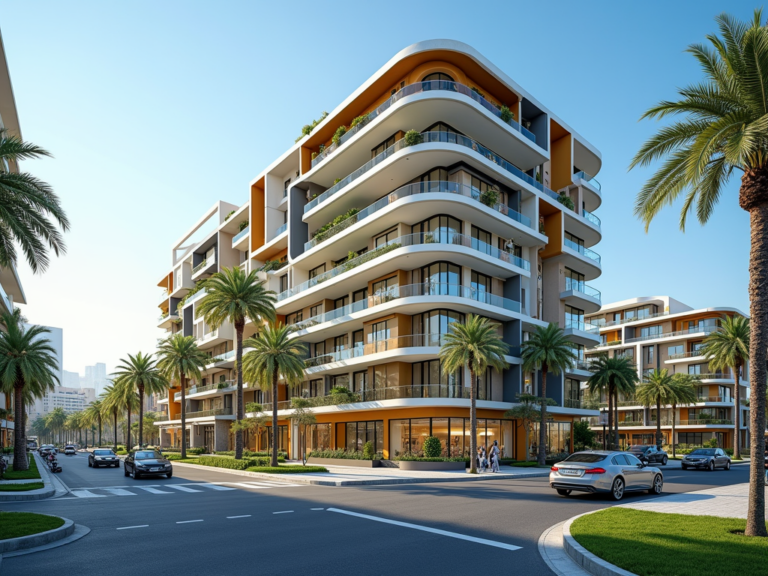Technology has become integral to Dubai’s real estate market, transforming how property is developed, sold, and managed. From proptech innovations to sophisticated data analytics, technology influences every stage of the real estate journey. This article will explore the various technological advancements shaping the landscape of real estate in Dubai, how these changes benefit stakeholders, and the future of this dynamic market as it continues to evolve.
Technological Innovations in Dubai’s Real Estate Sector

Dubai’s real estate market is characterized by its rapid modernization and adoption of cutting-edge technologies. Various innovations have played a pivotal role in reshaping the industry. These include:
- Virtual Reality (VR) and Augmented Reality (AR): These technologies allow potential buyers to view properties remotely, enhancing customer experiences and reducing the time needed for site visits.
- Blockchain Technology: By ensuring transparency and security in transactions, blockchain minimizes fraud and streamlines the buying process.
- Artificial Intelligence (AI): AI algorithms analyze market trends and customer data, enabling real estate professionals to make informed decisions that enhance investment strategies.
- Big Data Analytics: With vast amounts of data available, analytics provide insights into buyer preferences, property valuations, and market dynamics, facilitating smarter investments.
- Smart Homes and IoT: The integration of Internet of Things (IoT) devices into properties provides convenience and security, appealing to tech-savvy buyers.
The Impact of Technology on Property Transactions

The digitization of property transactions has streamlined processes that once required extensive paperwork and face-to-face dealings. This transformation has brought several advantages:
- Efficient Processes: Online platforms facilitate faster transactions, reducing delays associated with traditional methods.
- Increased Transparency: Buyers can access comprehensive information about properties and markets, fostering trust and informed decision-making.
- Market Accessibility: International investors can easily explore Dubai’s real estate market, opening doors to foreign capital.
- Enhanced Marketing: Digital marketing strategies, including social media and targeted online advertising, boost visibility and engagement.
- Remote Transactions: The ability to complete transactions digitally accommodates investors unable to be physically present in Dubai.
Dubai’s aspiration to become a leading smart city is closely linked to advancements in real estate technology. This initiative aims to enhance the quality of life for residents while promoting sustainable development. Key aspects include:
- Infrastructure Development: Smart infrastructure integrates technology into building designs, leading to energy efficiency and lower operational costs.
- Smart Urban Planning: Utilizing data and technology in urban planning ensures balanced growth and sustainability, reducing environmental impacts.
- Community Connectivity: Smart technologies improve services and connectivity within communities, fostering a sense of belonging among residents.
Challenges of Implementing Technology in Real Estate
While technology has significantly benefitted Dubai’s real estate market, some challenges remain. These hurdles include:
- Integration Costs: The initial investment for adopting sophisticated technology can be high for real estate companies, especially smaller firms.
- Data Security: As reliance on digital platforms increases, so does the risk of cyberattacks and data breaches, raising concerns among investors.
- Regulatory Compliance: Navigating the evolving regulatory landscape to ensure compliance with new digital transactions can be complex.
- Technological Adaptation: Some stakeholders, particularly traditional investors, may resist adopting new technologies, hindering overall market growth.
Conclusion
In summary, technology plays a critical role in evolving Dubai’s real estate market. The integration of innovative tools has streamlined transactions, enhanced marketing, and improved customer satisfaction, positioning Dubai as a global property powerhouse. While challenges remain, continued investment in technology and infrastructure will likely shape a prosperous future for the city’s real estate sector. As stakeholders embrace these changes, Dubai will continue to attract investors and homeowners looking for contemporary and secure living solutions.
Frequently Asked Questions
1. How has technology improved property viewings in Dubai?Technology like Virtual Reality (VR) and Augmented Reality (AR) has revolutionized property viewings, allowing buyers to explore properties from anywhere in the world, thus enhancing convenience and accessibility.2. What is blockchain’s role in Dubai’s real estate?Blockchain enhances transparency and security in real estate transactions, reducing risks of fraud while streamlining the buying process.3. Are smart homes gaining popularity in Dubai?Yes, the rise of smart homes equipped with IoT devices is appealing to tech-savvy buyers, who value convenience, energy efficiency, and enhanced security features.4. What challenges do investors face regarding technology in real estate?Investors may face challenges like high integration costs, data security risks, regulatory compliance requirements, and resistance to adopting new technologies.5. How does big data analytics impact real estate decisions?Big data analytics provides valuable insights into buyer preferences, property valuations, and market trends, enabling real estate professionals to make informed decisions and optimize investments.










